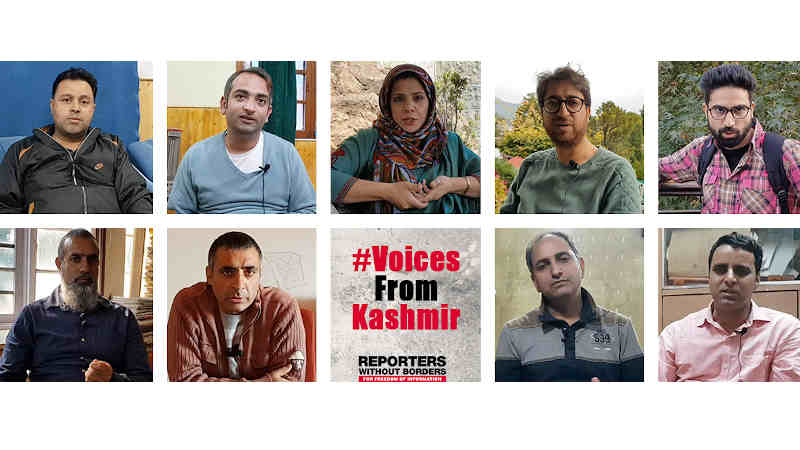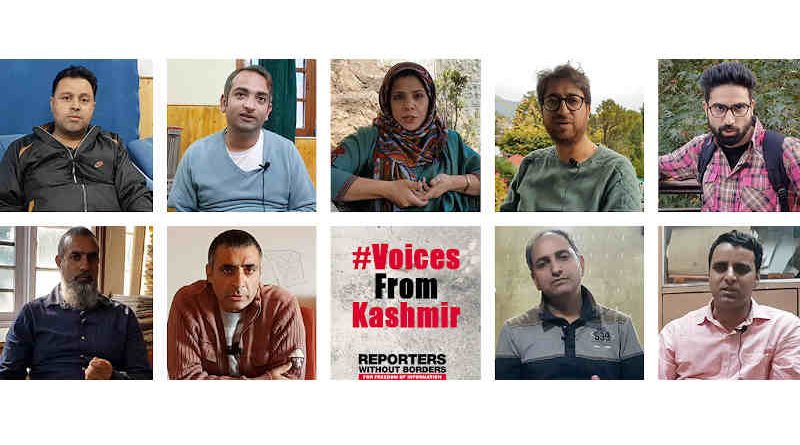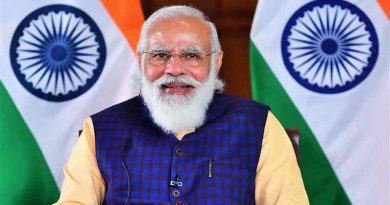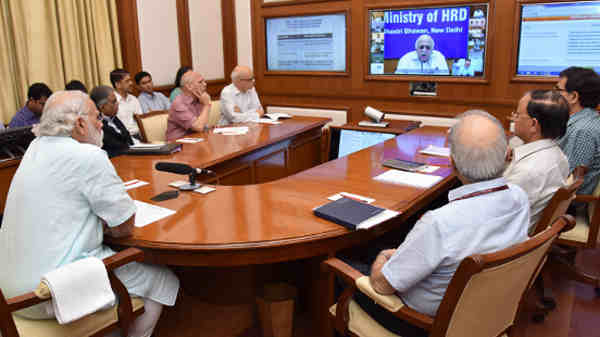RSF Breaks Silence Forced on Journalists in Kashmir. Videos Released

RSF correspondents have interviewed nine local journalists in Kashmir about the terrible constraints they have had to work under as a result of this blackout.
By Rakesh Raman
Reporters Without Borders (RSF) – the Paris-based international organization that defends freedom of journalists has released eight exclusive videos on the 100th day of a blackout imposed by the Indian government on all communications in the Kashmir valley.
RSF correspondents have interviewed nine local journalists about the terrible constraints they have had to work under as a result of this blackout.
The communications blackout was imposed by the national government headed by Prime Minister (PM) Narendra Modi to coincide with the repeal of Article 370 of India’s 1947 Constitution, which granted a degree of autonomy to Jammu and Kashmir (J&K), a conflict-affected state that has become one of the world’s most militarized territories.
“What these journalists say is a damning verdict on the appalling conditions in which the media are trying to work,” said Daniel Bastard, the head of RSF’s Asia-Pacific desk. “Their stories are shocking. Technological obstruction, surveillance, intimidation, and arrests – everything is designed to ensure that only the New Delhi-promoted version of events is being heard. The Kashmir valley’s population has been buried in a news and information black hole for the past 100 days. This situation is a disgrace to Indian democracy.”
RELATED STORIES
[ Situation for the People of Kashmir Is Not Good: Angela Merkel ]
[ New UN Report Reveals Human Rights Violations by India in Kashmir ]
[ Internet Freedom in India Declines Under Modi Govt: Global Report ]
[ BBC Defends Its Reporting on Violence in Kashmir ]
Currently, Kashmir is facing extreme human rights violations being committed by the Indian security forces, as the government headed by PM Modi has abrogated Article 370 which gave special privileges to the people of Jammu & Kashmir (J&K).
Expecting backlash from the Kashmiris, the Modi government had imposed curfew in Kashmir and millions of people (most of them are Muslims) have been locked in their homes since August 4, a day before revoking Article 370 for J&K.
⚡#India: Today is the 100th day that 8 million people in #Kashmir have been cut off from the rest of the world. In a series of videos called #VoicesFromKashmir, RSF provides exclusive interviews with 9 journalists living in an open prison.
Thread ⇩⇩ pic.twitter.com/ZjgX4mPWTQ— RSF (@RSF_inter) November 13, 2019
A United States (U.S) Senator from the Democratic Party has claimed that the Indian authorities denied him permission to visit Kashmir, which has been forcefully occupied by the Indian security forces.
Senator Chris Van Hollen – who was in India in October – said he wanted to visit Srinagar in Kashmir to assess the extent of human rights violations being committed by India, but he was not allowed to go to the troubled valley.
According to a report published in The Washington Post, Van Hollen is one of 50 members of U.S. Congress who have expressed concern over the situation in Kashmir, which is a disputed territory between India and Pakistan.
The Senator said that the Indian government did not want him to see what is happening in Kashmir, adding that if you have nothing to hide then there is nothing to fear by allowing visitors to travel in Kashmir.
It is stated that India has deployed nearly 900,000 security people to control unarmed Kashmiris (nearly 80% are Muslims), and nearly 80,000 civilians have been killed in the conflicts during the past 7 decades.
The Modi government’s annexation of Kashmir is a unilateral, authoritarian move, which is expected to make Kashmir a veritable inferno because most people of Kashmir do not want to live under the Indian rule where Modi is the ruler.
Today, nearly 2 billion Muslims of the world expect the global community – including the U.S. – to save the Muslims of Kashmir who are being treated as slaves by the Modi government.
By Rakesh Raman, who is a national award-winning journalist and social activist. He is the founder of a humanitarian organization RMN Foundation which is working in diverse areas to help the disadvantaged and distressed people in the society. He also creates and publishes a number of digital publications on different subjects.





